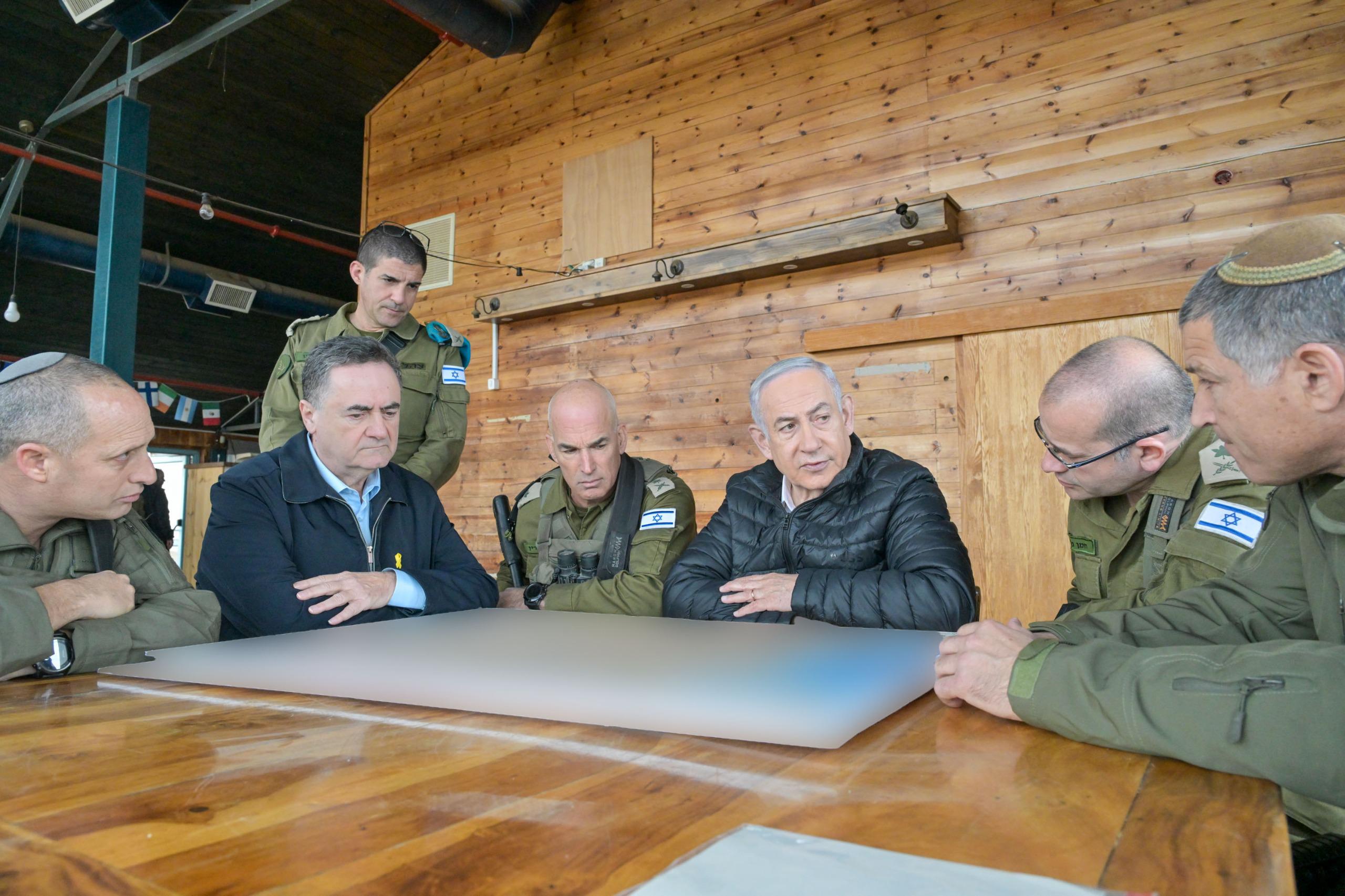Netanyahu cites ‘historic day,’ announces IDF control of buffer zone in Syrian Golan Heights
DM Katz says Iranian 'octopus tentacles are being cut off one by one'

Israeli Prime Minister Benjamin Netanyahu and Defense Minister Israel Katz visited the Golan Heights on Sunday following the dramatic announcement of the fall of the regime of Syrian President Bashar al-Assad and the capture of the capital city of Damascus by rebel forces led by the Sunni Islamist militant group, Hayat Tahrir al-Sham (HTS).
Netanyahu and Katz visited the Mount Bental area in the Golan Heights, near the border, where they were briefed by IDF Northern Command Chief, Maj.-Gen. Uri Gordin.
After the briefing, Netanyahu stated, "This is a historic day for the Middle East. The collapse of the Assad regime, the tyranny in Damascus, offers great opportunity but also is fraught with significant dangers.”
He directly claimed Israel's responsibility for part of the collapse due to its “forceful action” in Lebanon.
“This collapse is the direct result of our forceful action against Hezbollah and Iran, Assad's main supporters,” he continued. “It set off a chain reaction of all those who want to free themselves from this tyranny and its oppression.”
However, Netanyahu also warned that changes in Syria would provide “possible threats” that Israel is actively working to counter.
“But it also means we need to take action against possible threats,” the prime minister continued. “One of them is the collapse of the Separation of Forces Agreement from 1974 between Israel and Syria. This agreement held for 50 years. Last night it collapsed. The Syrian army abandoned its positions.”
Confirming reports in Arab media stating that the IDF was moving to take over a Syrian position near the Israeli border, Netanyahu said, “We gave the Israeli army the order to take over these positions to ensure that no hostile force embeds itself right next to the border of Israel.”
Netanyahu called the move “a temporary defensive position until a suitable arrangement is found.”
He said that Israel was ready to extend “a hand of peace to all those beyond our border in Syria: To the Druze, to the Kurds, to the Christians, and to the Muslims who want to live in peace with Israel.”
“If we can establish neighborly relations and peaceful relations with the new forces emerging in Syria, that’s our desire,” he said. “But if we do not, we will do whatever it takes to defend the State of Israel and the border of Israel.”
In his Hebrew comments, Netanyahu referred to "Operation Good Neighbor," a humanitarian initiative during the Syrian civil war in which Israel provided medical treatment to thousands of injured Syrians. Many were brought into Israel for care and later returned to Syria after their treatments were completed.
“At the same time, we are operating under a policy of good neighborliness, the same good neighborliness we maintained when we set up a field hospital here [in the buffer zone] that treated thousands of Syrians wounded in the civil war. Hundreds of Syrian children were born here in Israel,” the prime minister added.

Katz called the collapse of the Assad regime “a severe blow to the Iranian axis of evil, which has set itself the goal of bringing about the destruction of the State of Israel.”
“The octopus tentacles are being cut off one by one,” Katz said in a statement posted on 𝕏.
He also reaffirmed the government’s goal of providing “security to the settlements of the Golan Heights.”
“We are determined not to allow a return to the situation of the sixth of October – neither in the Golan Heights nor anywhere else,” Katz said.

The All Israel News Staff is a team of journalists in Israel.
You might also like to read this:














